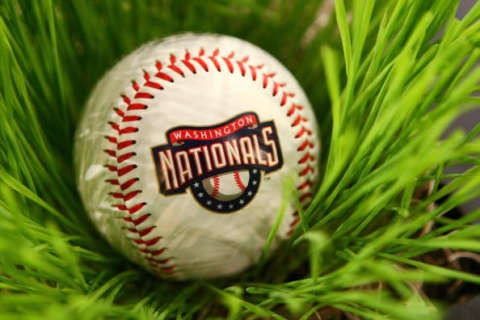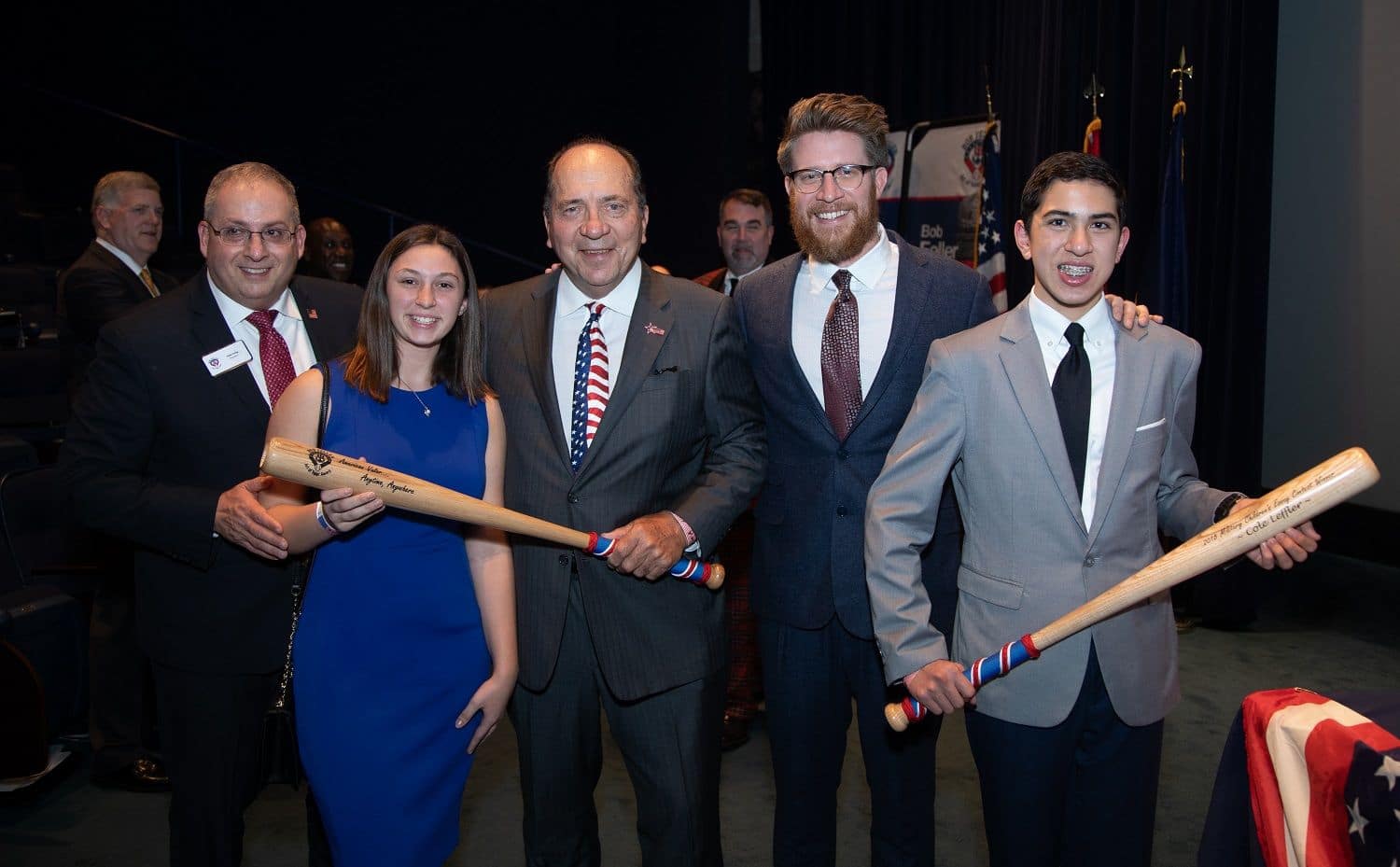
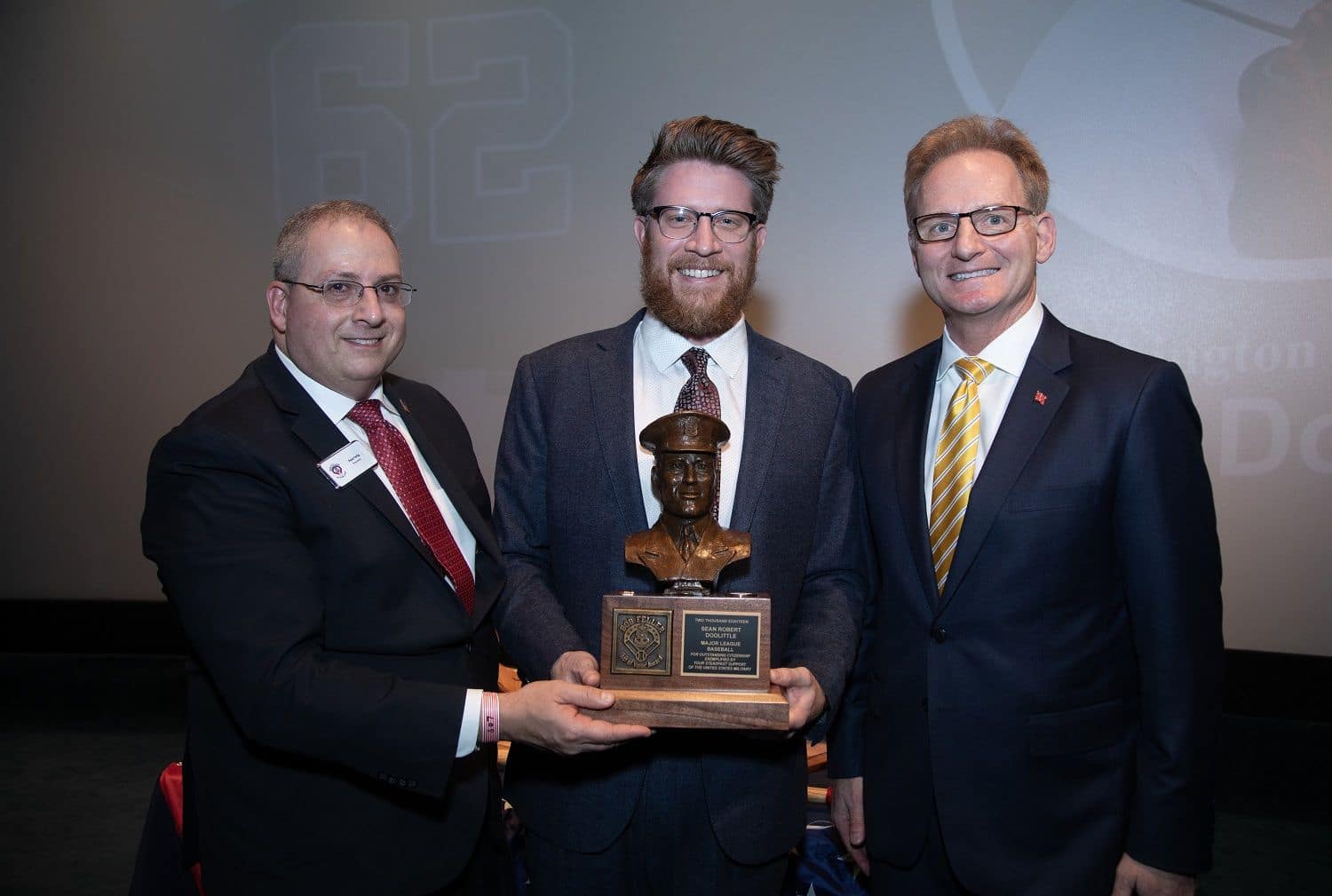
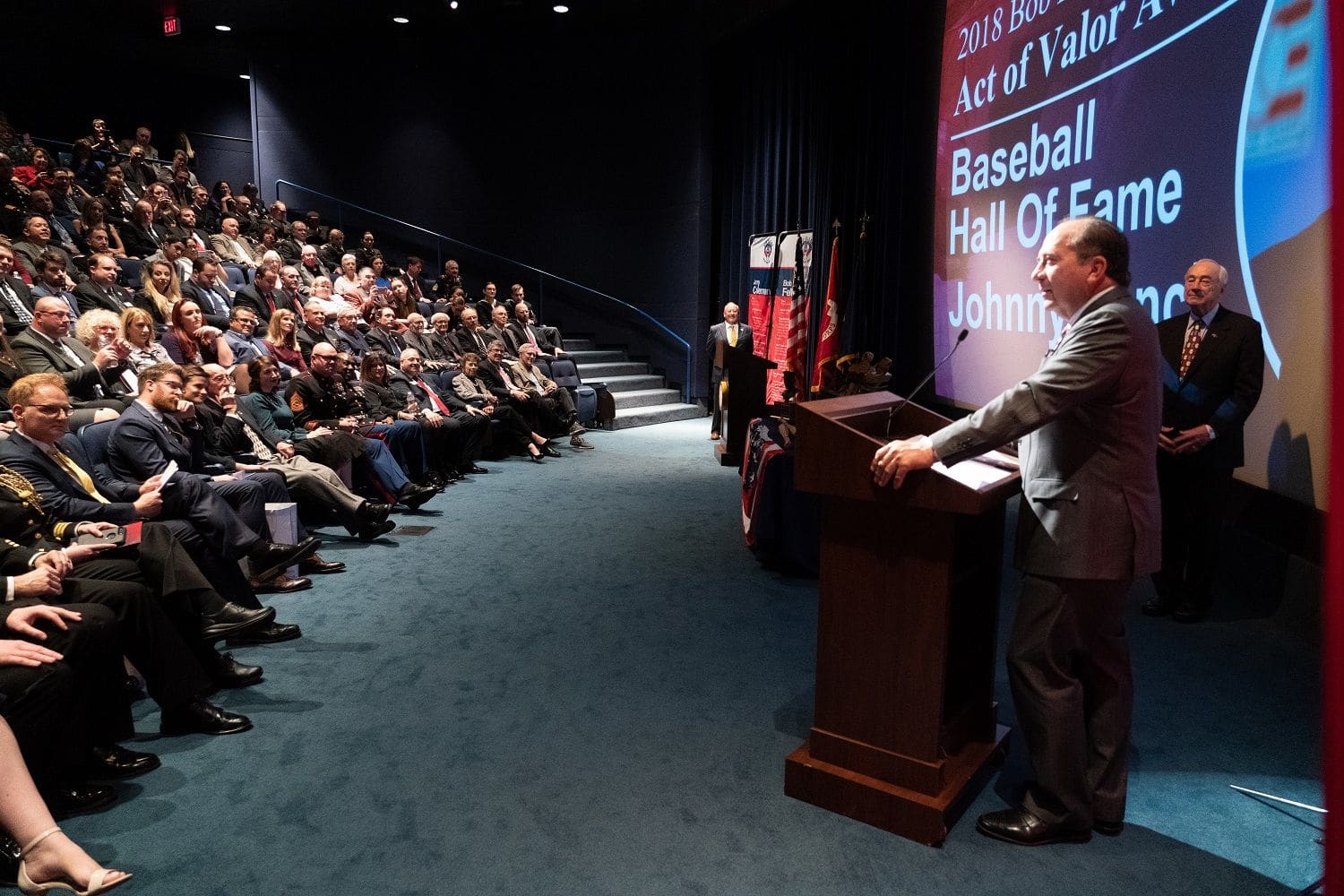
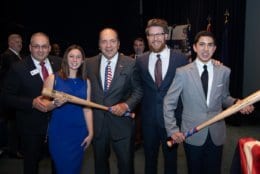
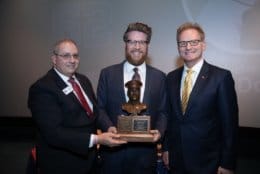
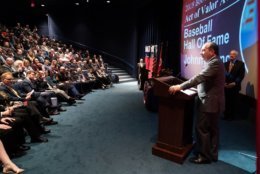
WASHINGTON — Sometime late last season, Sean Doolittle got a tip from an unexpected source — the bullpen cart driver at Nationals Park.
Doolittle, the affable Nats closer who was one of the first in the game to embrace the idea of taking a ride in from bullpen in the throwback vehicle, had befriended the driver, whom he simply knew as a retiree named Mike.
“Keep your calendar clear for late November/early December,” Mike told him. “There might be an award coming your way.”
It wasn’t until later that Doolittle connected the dots; that he was speaking to retired Rear Admiral Michael E. Jabaley of the U.S. Navy; that the honor that would be bestowed upon him was the Bob Feller Act of Valor Award, which was presented to him Monday night at the Navy Memorial for his extensive work with veterans and military families.
“My wife and I both come from military families, so these issues surrounding military families and veterans organizations are stuff that we’re very passionate about. It’s nice to be recognized for them, absolutely, it’s an incredible honor to be in a room with some of these people.”
This is the sixth year the award has been given, not just to an active major leaguer, but also to a Hall of Famer (Johnny Bench), a U.S. Navy Petty Chief Officer (CPO Aviation Ordinanceman Chief Shawn M. Wingle), two peer-to-peer mentoring awards, as well as the United States Marine Corps Jerry Coleman Award (Gunnery Sergeant Jonathon S. Rose), named after the former MLB player and broadcaster.
For those who only know Feller’s legacy as a ballplayer: He enlisted just days after the attack on Pearl Harbor to volunteer for World War II, leaving behind a string of three straight top-three MVP finishes in the prime of his career. Feller served in both the Pacific and North Atlantic, rising to the rank of Chief Petty Officer, and was decorated with six campaign ribbons and eight battle stars. He missed nearly four full seasons, returning late in the 1945 campaign to pitch 12 more years in the majors.
“It’s an incredible honor to be associated with Bob Feller’s legacy,” said Doolittle. “I’ll never come close to accomplishing anything he did, either in the military or on the field. So just to be kind of associated with that in a really small way is really cool.”
Both Doolittle and his wife, Eireann Dolan, are from military families and have long made supporting veterans a keystone of their efforts. Their work equipping homes for wounded veterans during his time in Oakland marked Doolittle’s first entrée into off-the-field charity work. Since arriving in Washington, they’ve been doing what they always do: trying to listen first to assess the biggest needs before deciding on a course of action.
“Eireann and I are constantly trying to learn more about veterans and issues facing military families and to try to find different ways to raise awareness of things that aren’t getting talked about a lot,” said Doolittle.
One of the issues they were working on prior to Doolittle’s trade was trying to help so-called “bad paper” veterans, those caught in the gray area between an honorable and dishonorable discharge, to get the services they need. They coauthored an op-ed for Sports Illustrated in 2017, but know there is still work to be done.
“The statistics around veteran suicides are incredibly alarming, and we wanted to learn more about why that was happening. Because people know the numbers — they might be familiar with 20 a day — but it’s really abstract, I think, to a lot of people until you can shine a light on some of the contributing factors,” said Doolittle.
Sports teams and leagues, especially at the major professional level, often perform public displays of patriotism, whether by wearing special uniforms, unfurling giant flags, having flyovers during the national anthem, or surprising families by reuniting them with their active duty service members. Doolittle recognizes that such endeavors may be a good reminder to civilians of the sacrifice many service men and women make, but that it’s crucial to do more to actually help veterans in times of need.
“I think that’s an ongoing conversation around sports,” he said. “Doing a better job with that platform to not just capitalize on people’s patriotism, and sell hats and shirts with your team’s logo and camouflage on it, but to really use your platform as a sports league to shine a light on some of the issues facing veterans and military families.”
He cites some of the programming the Nats have implemented — from team events out at Walter Reed Army Medical Center, to the Tragedy Assistance Program for Survivors (TAPS), which brings families to the ballpark every month during the season — as good steps in that direction. With the notoriety from an honor like the Act of Valor Award, Doolittle hopes to continue to use his own spotlight to illuminate the interactions he’s had for others, to make them more aware and get them more involved.
“Hearing their stories, talking with the families, meeting with them, it was an incredibly powerful experience,” he said. “That’s something that stays with you and it changes your perspective a lot, when you start thinking about some things that military families deal with.”


